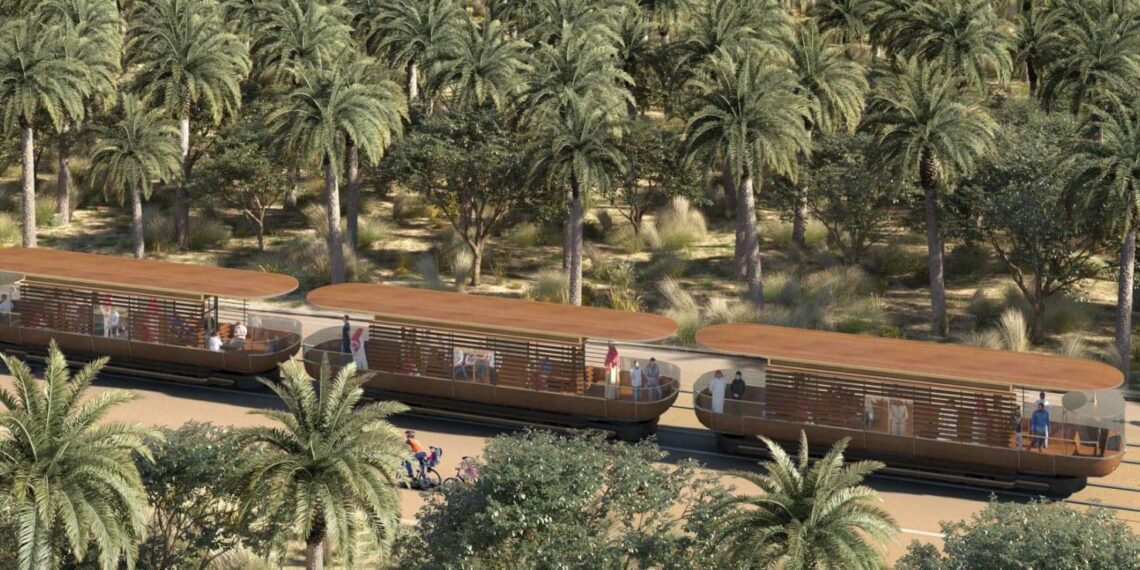The Royal Commission for AlUla (RCU) has recently formalized a partnership agreement with Alstom, an expert in sustainable transport, to facilitate the implementation of the AlUla Train Project. This collaborative venture, scheduled for launch in 2027, aims to offer a distinctive and immersive experience, blending the region’s rich heritage, culture, and natural splendor.
A key objective of the AlUla Train Project is to advocate for sustainability in transportation. By alleviating road congestion and reducing noise levels, the initiative seeks to enhance the overall transportation system, as reported by the Saudi Press Agency (SPA).
The trains involved in the project will be powered by sustainable electricity and will serve as a seamless conduit connecting various heritage sites, creating a tourism experience that showcases the region’s breathtaking natural landscape.
The partnership was formalized at the esteemed Future Investment Initiative (FII7) forum, in the presence of Saudi Minister of Transport and Logistics Engineer Saleh Al Jasser, and CEO of the Royal Commission for AlUla, Amr Zidan.
Encompassing a 22.4-kilometer-long line featuring 17 stations, the AlUla Train Project will deploy 20 trains, underscoring RCU’s strong commitment to sustainable transportation.
“The AlUla Train Project serves as a core component of the RCU’s Journey Through Time Masterplan, playing a crucial role in positioning AlUla as a global hub for arts, heritage, culture, and nature, in alignment with the objectives outlined in the Saudi Vision 2030,” remarked the minister.
In close collaboration with the distinguished international transport company, Systra, the AlUla Train has been meticulously crafted to offer deluxe tours encompassing the most prominent facets of the region, as per SPA reports.
The train will establish a link between AlUla International Airport and five significant historical regions, providing passengers with an exceptional visual odyssey that traverses from lush oases to the captivating desert. This design serves as a testament to RCU’s forward-thinking approach and unwavering commitment to sustainable transportation, the report added.





